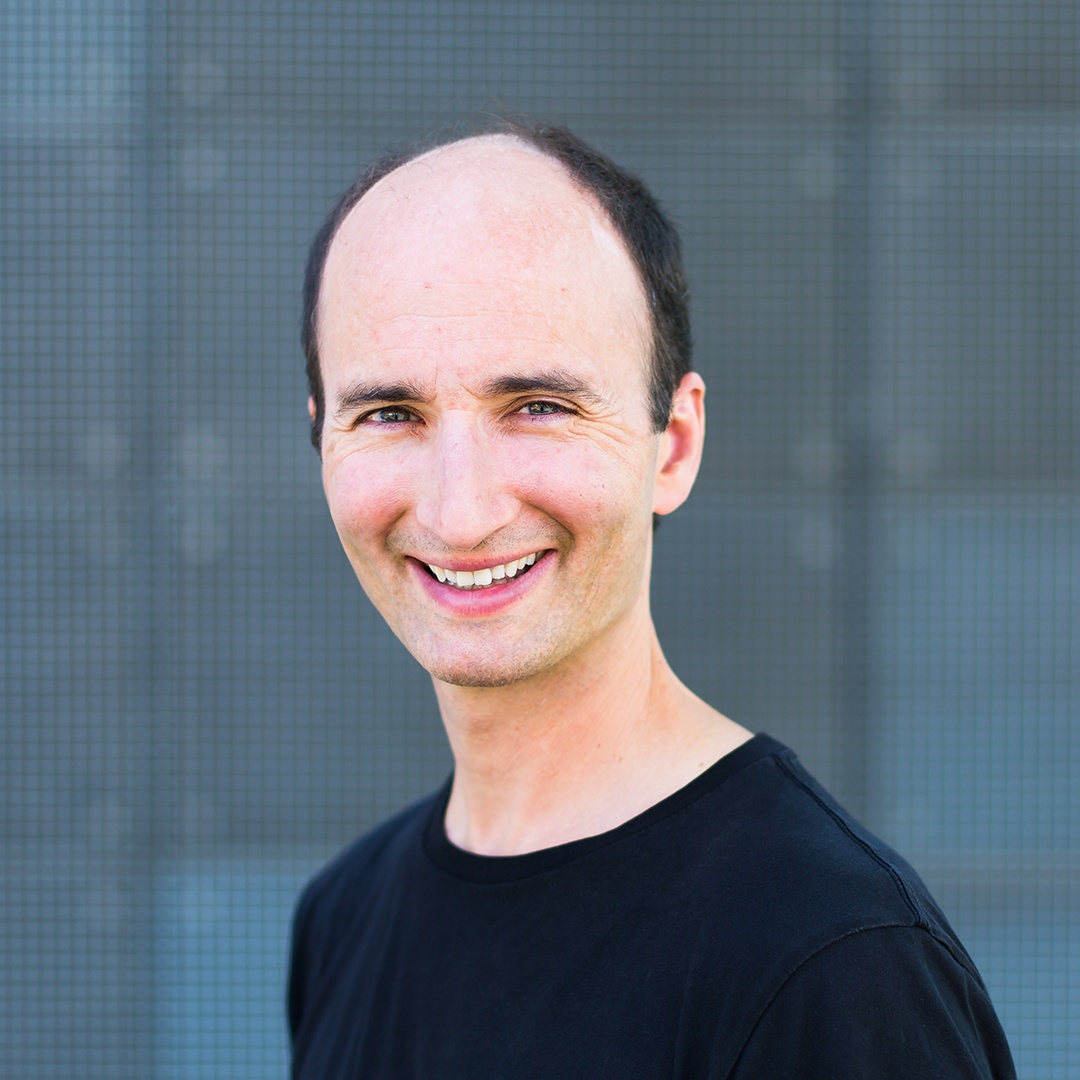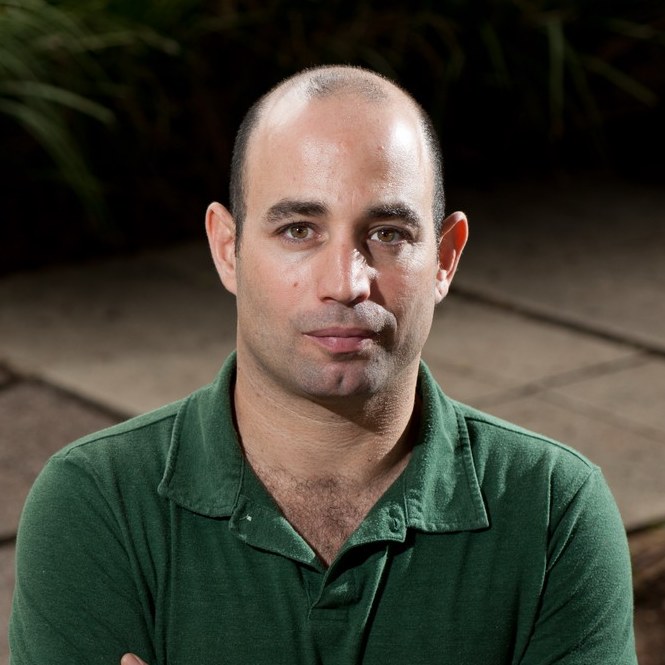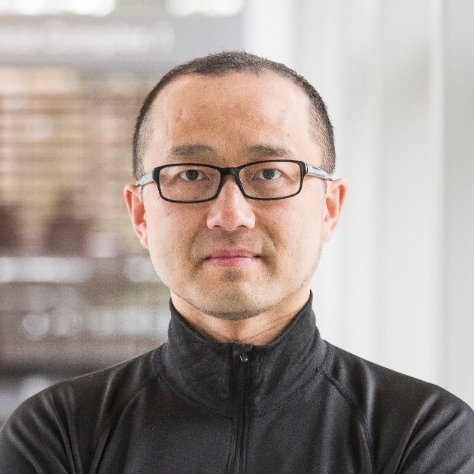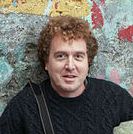Symposium on
Geometry Processing 2019
Milan 8-10 July 2019
Keynotes

Daniel Cremers
(Technische Universität München)
Novel Algorithms for Reconstructing and Analysing 3D Shapes
The reconstruction and understanding of the 3D world from images is among the central challenges in computer vision. In my presentation, I will describe recent developments in camera-based 3D reconstruction and visual SLAM. I will emphasize the value of direct methods which do not require feature point estimation, which exploit all available input data and recover dense or semi-dense reconstructions of the world. Moreover, I will introduce techniques for 3D shape analysis with a focus on elastic shape correspondence and interpolation.
Daniel Cremers received a Master's degree in Theoretical Physics (1997) from the University of Heidelberg and a PhD in Computer Science from the University of Mannheim (2002). He worked a postdoc at the University of California at Los Angeles - UCLA (2002-2004), as a permanent researcher at Siemens Corporate Research in Princeton - NJ (2005), as an associate professor at the University of Bonn (2005-2009), and as chair for Computer Vision and Pattern Recognition at the Technical University - Munich (since 2009). His publications received several awards, including the 'Best Paper of the Year' (Int. Pattern Recognition Society, 2003), the 'Olympus Award' (German Soc. for Pattern Recognition, 2004) and the 'UCLA Chancellor's Award for Postdoctoral Research' (2005). He received a ERC Starting Grant (2009), a ERC Proof of Concept Grant (2014) and a ERC Consolidator Grant (2015) by the European Research Council. He served as associate editor for several journals including the International Journal of Computer Vision, the IEEE Transactions on Pattern Analysis and Machine Intelligence and the SIAM Journal of Imaging Sciences, as area chair (associate editor) for ICCV, ECCV, CVPR, ACCV, IROS, etc, and as program chair for ACCV 2014. In 2018 he organized the largest ever European Conference on Computer Vision in Munich, with 3300 delegates. In 2010 he was listed among “Germany's top 40 researchers below 40” by Capital. In 2016, he received the Gottfried Wilhelm Leibniz Award, the biggest award in German academia. He co-founded several companies, most recently the high-tech startup Artisense.
Keynote time: . Chair: Leif Kobbelt · RWTH Aachen.

Yaron Lipman
(Weizmann Institute of Science)
Deep Learning Irregular Data
Large part of the recent success of applying neural networks to image data is attributed to the restriction of the networks to translation-invariant functions without compromising their expressive power. In this talk we discuss how to adapt this basic paradigm of neural networks to irregular data including graphs and hyper-graphs. We characterize the symmetries of irregular data, construct linear layers that respect this symmetry, and discuss expressiveness of the resulting networks. We will conclude by introducing a simple model for learning graph data that has better expressive power than existing graph neural networks.
Yaron Lipman is an associate professor at the Department of Computer Science and Applied Mathematics at the Weizmann Institute of Science, Israel. He did his PhD at Tel Aviv University and spent his postdoc at Princeton University. His research interests are in geometric modeling and processing, shape comparison and analysis, discrete differential geometry, and geometric deep learning. Yaron has received multiple awards for his work, including the Eurographics Young Researcher Award (2009), the Blavatnik Award for Young Scientists from the New-York Academy of Sciences (2010) the ERC Starting Grant (2012), and the ERC Consolidator Grant (2018).
Keynote time: . Chair: Daniele Panozzo · NYU.

Hao (Richard) Zhang
(Simon Fraser University)
Can Machines Learn to Generate 3D Shapes?
Computer-aided geometric modeling is about synthesis and creation by computing machinery. Early success has been obtained on training deep neural networks for speech and image syntheses, while similar attempts on learning generative models for 3D shapes are met with difficult challenges. In this talk, I will highlight the representation, data, and output challenges we must tackle and how my research has shaped itself to address them. In particular, I argue that the ultimate goal of 3D shape generation is not for the shapes to look right; they need to serve their intended (e.g., functional) purpose with the right part connection, arrangements, and geometry. Hence, I advocate the use of structural representations of 3D shapes and show our latest work on training machines to learn one such representation and an ensuing generative model. At last, I will venture into creative modeling, perhaps a new territory in machine intelligence and ask: can machines learn to generate creative contents?
Hao (Richard) Zhang is a full professor in the School of Computing Science at Simon Fraser University (SFU), Canada, where he directs the graphics (GrUVi) lab. He has also been a visiting professor at Stanford University (2016-17). Richard obtained his Ph.D. from the University of Toronto, and MMath and BMath degrees from the University of Waterloo. His research is in computer graphics with special interests in geometric modeling, shape analysis, 3D content creation, machine learning, and computational design and fabrication, and he has published more than 120 papers on these topics. Richard served as editor-in-chief for Computer Graphics Forum (2014-18) and is an associate editor for IEEE TVCG and IEEE CG&A. He has served on the program committees of all major computer graphics conferences and is SIGGRAPH Asia 2014 course chair, a paper co-chair for SGP 2013, GI 2015, and CGI 2018, and a program chair for the International Geometry Summit 2019. Richard is an IEEE Senior Member and his awards include an NSERC DAS (Discovery accelerator Supplement) Award in 2014, Best Paper Awards from SGP 2008 and CAD/Graphics 2017, a Faculty of Applied Sciences (FAS) Research Excellence Award at SFU in 2014, and a National Science Foundation of China (NSFC) Overseas Outstanding Young Researcher Award in 2015.
Keynote time: . Chair: Leonidas J. Guibas · Stanford University.

David Eppstein
(University of California)
Graphs in Nature
Many natural processes produce planar structures that can be modeled mathematically as graphs. These include cracking of sheets of glass or mud, the growth of needle-like crystals, foams of soap bubbles, and the folding patterns of crumpled paper. We survey graph-theoretic models for these phenomena, the properties of the graphs arising from them, and algorithms for recognizing these graphs and reconstructing their geometry.
Professor David Eppstein is Chancellor's Professor of Computer Science at the University of California, Irvine, where he has taught since 1990. He has degrees from Stanford University and Columbia University, and is a fellow of the ACM and the American Association for the Advancement of Science. His research interests include discrete and computational geometry, graph algorithms, data structures, and information visualization. He has published over 350 journal articles and refereed conference proceedings papers, two books, and six edited volumes.
Keynote time: . Chair: Enrico Puppo · Università di Genova.